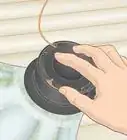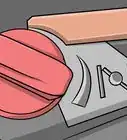This article was co-authored by Benjamin Hansen. Benjamin Hansen is a Landscape Contractor and the Owner of Artscape Gardens, a boutique landscaping company in Los Angeles, California. With over 12 years of experience, Benjamin specializes in transforming properties into aesthetic, functional, and drought-tolerant oases. Benjamin uses color scheme, dimension, and water conscious spaces to inspire the design and installation of soft scape, hardscape, patios, pathways, irrigation, drainage, fencing, concrete, lighting, and electrical work. Artscape Gardens covers all areas of the C-27 landscape contractor classification.
wikiHow marks an article as reader-approved once it receives enough positive feedback. In this case, 99% of readers who voted found the article helpful, earning it our reader-approved status.
This article has been viewed 258,339 times.
Clearing land can definitely be a big job, but if you take it step-by-step, it is doable. Start by sizing up the situation to determine how much of the job you can handle yourself, and which portions of the project might require outside help. Once you’ve determined if you need the help of a contractor or other expert, just take things a bit at a time. Clear away any standing debris, for instance, then fell any trees and cut down remaining vegetation. After you patch up any holes and smooth out the land, it will be ready to go.
Steps
Sizing Up Your Project
-
1Decide if you need outside help. If you are working a large plot, it can take a lot of time. You should also inspect your land to see if there is anything that would make clearing it especially difficult, like very large trees or steep hillsides. If you don’t have the time, tools, or know-how, this is a job you should get a contractor or other expert to help out with.
- Depending on the complexity of your project, you might hire a contractor to do all of the land clearing for you.[1]
- Alternatively, you could hire people to take care of some aspects of the land clearing and handle others yourself.
- For instance, you might feel prepared to clear brush and fell small trees, but could hire an arborist or logging company to handle any that are especially large.
-
2Check and see if you need a permit. Depending on where you live, there might be protected vegetation, concern about soil erosion, or other factors that impact land clearing. Before you take on a big project, check with your local land planning agency to determine if you need permits.[2]
- If you hire a contractor, they may be able to handle the permit process for you.
Advertisement -
3Set a budget. Contractors may work on a fixed price per square foot or land. If you have a large plot, this means the overall cost can rise quickly. Even if you are planning on clearing the land yourself, expect to have some costs for running and maintaining your equipment, buying any necessary tools or supplies, paying for the removal or dumping of debris, etc.[3]
- Contractor costs will vary depending on your location, and the equipment needed.
- Demolition, haul away, and excavation can be done in many different ways depending on the size of the project and whether the parcel is on a hillside.[4]
- Contractors can work with Bobcats, but also might have to do part of the work by hand.[5]
-
4Get an estimate from a contractor if you will use one. Before you settle on a contractor, shop around. Ask a few to give you an estimated price for clearing your land, then choose the best contractor you can within your budget. Contractor costs will be based on things like:[6]
- The size of the plot
- How quickly the land needs to be cleared
- Whether the plot has any features that make clearing difficult (steep hills, remote location, unusual soil types, etc.)
- The time of year
- Whether any subcontractors will need to be hired
Clearing the Land
-
1Demolish any existing structures. If there are any old buildings, sheds, stables, or other structures on the land, you’ll need to knock these down. Use a wrecker, bulldozer, or other heavy equipment to take care of the job quickly. When you’re done, dispose of the debris.[7]
- Check with local sanitation companies to see if you can rent a large construction dumpster for the debris.
-
2Remove standing debris. Rocks, fallen limbs, and trash will all need to be out of the way. Picking these things up will make it easier to get equipment in to clear vegetation and trees.[8] Consider checking with local excavation companies, sand and gravel suppliers, and other heavy equipment dealers to see if you can rent a debris grate. This is a large, heavy, front-loading piece of machinery that may help in the debris removal process.
- If there are any boulders you need removed, wrap a heavy-duty chain around them. Then, attach the chain to a tractor and drag them out of the way.
-
3Mark and protect all desired vegetation that can’t be temporarily moved. Fence off any trees that you want to keep with brightly colored construction fencing or wrap landscape fabric around their base to protect them. Install fencing around smaller plants as well. Use brightly colored forestry flagging ribbon to clearly mark all desired vegetation.
- Mark all low tree branches with ribbon to avoid damage caused by operating equipment under the tree canopy.
- Continue providing water to the plants as needed.
-
4Fell any trees. If you know how to work a chainsaw, you can handle a small plot without much trouble. If you have a large plot with lots of trees, however, rent some professional equipment to make the job quicker and easier.[9]
- You can have the felled trees hauled away. Or, if you prefer, you can cut the trees into firewood or put a mulching attachment on a skid steer machine to make them into mulch.
- Very large trees, or ones with dangerously decayed limbs, are best left to professionals.
-
5Grub any remaining tree stumps. To remove a tree stump (called “grubbing”), start by digging down to the roots all around it with a shovel. Attach a heavy-duty chain around the stump, and then use a tractor to pull it out.[10]
-
6Clear brush. There are many options for clearing out vegetation. You could use hand-held trimmers to cut the vegetation at ground level if the job is not too big. If there’s a lot of land to cover, rent a brush machine to tear through it more quickly. You can compost, burn, or shred the debris, according to your preference.[11]
- If you have low ground vegetation, you can use grazing animals like sheep or goats to clear it. Sometimes, these animals can work surprisingly quickly.
- Goats can even eat poison ivy without being harmed, saving you from some potentially irritating trouble.
- In some locations, you can rent grazing animals for this purpose.
-
7Fill in holes and grade the land. If you have any holes created by removing stumps, boulders, or other debris, shovel loose dirt into these. Tamp the dirt down into the holes until it is compact. Add more dirt if necessary, and repeat until the surface is level.[12]
- If you are planning to construct something on the cleared land, a contractor will most likely use a professional grader to smooth things out.
-
8Plow if you want to farm or landscape the area. Turning the soil with a plow is an extra step to make sure the ground is even. If there is any organic matter (like grass or leaves) on top of the soil, plowing will also mix this in so that valuable nutrients are added back in.[13]
- Avoid plowing wet or steep land. Instead, let native vegetation cover the area. This helps prevent soil erosion.
Expert Q&A
Did you know you can get expert answers for this article?
Unlock expert answers by supporting wikiHow
-
QuestionCan you clear land yourself?
 Benjamin HansenBenjamin Hansen is a Landscape Contractor and the Owner of Artscape Gardens, a boutique landscaping company in Los Angeles, California. With over 12 years of experience, Benjamin specializes in transforming properties into aesthetic, functional, and drought-tolerant oases. Benjamin uses color scheme, dimension, and water conscious spaces to inspire the design and installation of soft scape, hardscape, patios, pathways, irrigation, drainage, fencing, concrete, lighting, and electrical work. Artscape Gardens covers all areas of the C-27 landscape contractor classification.
Benjamin HansenBenjamin Hansen is a Landscape Contractor and the Owner of Artscape Gardens, a boutique landscaping company in Los Angeles, California. With over 12 years of experience, Benjamin specializes in transforming properties into aesthetic, functional, and drought-tolerant oases. Benjamin uses color scheme, dimension, and water conscious spaces to inspire the design and installation of soft scape, hardscape, patios, pathways, irrigation, drainage, fencing, concrete, lighting, and electrical work. Artscape Gardens covers all areas of the C-27 landscape contractor classification.
Licensed Landscape Contractor
-
QuestionI own 3 acre of trees, and I need to get rid of all of them. Would it be best to rent a front end loader to push the trees through with the stumps intact?
 Community AnswerYes, I would rent a front end loader. You probably don't wants stump all over your land and this will give a better, finished look.
Community AnswerYes, I would rent a front end loader. You probably don't wants stump all over your land and this will give a better, finished look. -
QuestionHow do I clear rats off my land?
 Community AnswerSnakes and cats. I got rid of rats by spreading used kitty litter all over the lot, especially in hiding places like bushes and felled trees. The smell of cat pee freaks them out.
Community AnswerSnakes and cats. I got rid of rats by spreading used kitty litter all over the lot, especially in hiding places like bushes and felled trees. The smell of cat pee freaks them out.
Warnings
- Follow all erosion control and water runoff rules and regulations, or else you may be fined.⧼thumbs_response⧽
- Install silt fencing and retainment ponds as required if there is rainy weather during the clearing process.⧼thumbs_response⧽
- Be careful not to track heavy soils or mud out of the work site and onto public roads. If you do this, you may be fined.⧼thumbs_response⧽
References
- ↑ Benjamin Hansen. Licensed Landscape Contractor. Expert Interview. 6 October 2020.
- ↑ http://www.improvenet.com/r/costs-and-prices/land-clearing-cost
- ↑ http://www.improvenet.com/r/costs-and-prices/land-clearing-cost
- ↑ Benjamin Hansen. Licensed Landscape Contractor. Expert Interview. 6 October 2020.
- ↑ Benjamin Hansen. Licensed Landscape Contractor. Expert Interview. 6 October 2020.
- ↑ http://www.improvenet.com/r/costs-and-prices/land-clearing-cost
- ↑ http://www.improvenet.com/r/costs-and-prices/land-clearing-cost
- ↑ https://www.hunker.com/13425936/how-to-clear-land-for-farming
- ↑ https://www.hunker.com/13425936/how-to-clear-land-for-farming
About This Article
To clear a piece of land, start by using a wrecker of bulldozer to demolish any existing structures, such as buildings and sheds. Next, remove any standing rocks and debris, and chop down the trees you don’t want to keep. Afterwards, tie a heavy-duty chain around the remaining stumps, then pull out the stump by attaching the end of the chain to a tractor. Finally, clear away the ground level vegetation with a brush machine and fill in any holes with dirt to make sure the ground is level. To learn more, including how to decide if you should hire a contractor to clear your land, read on!
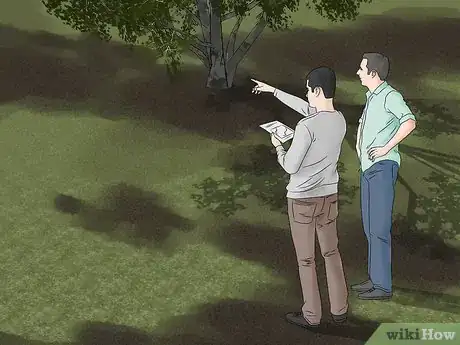



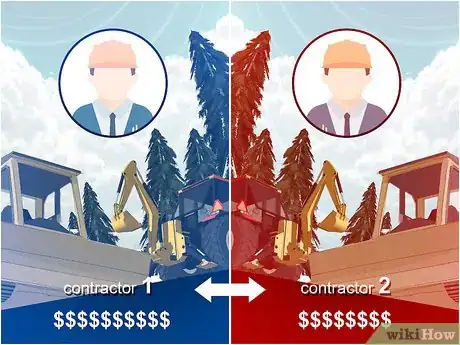
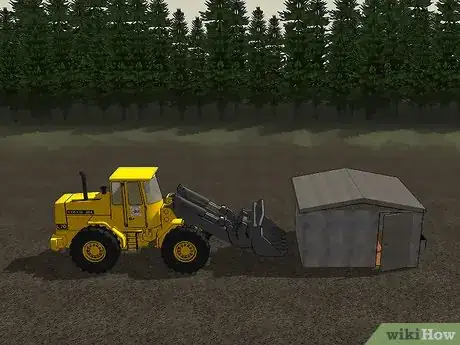


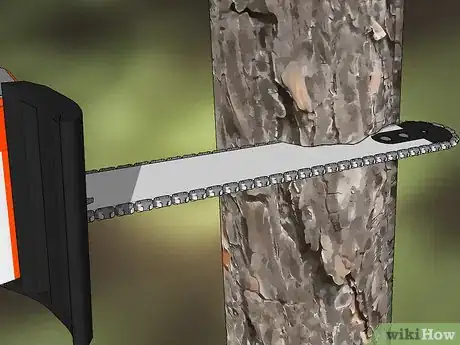
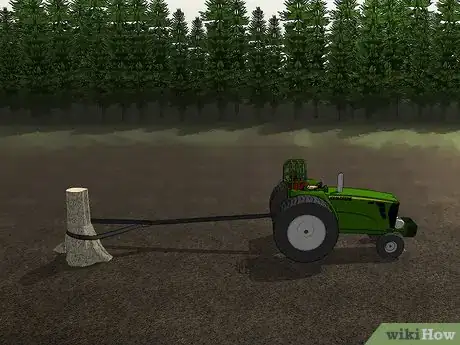

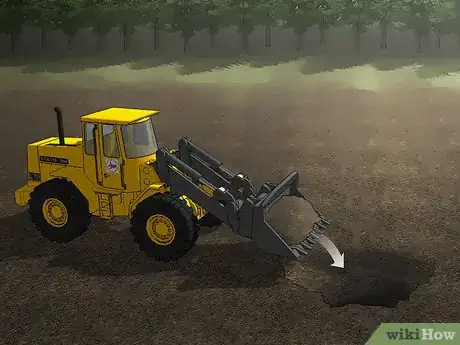
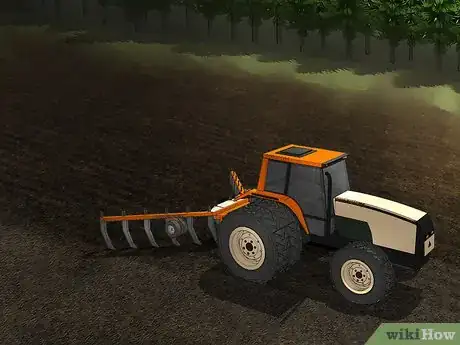
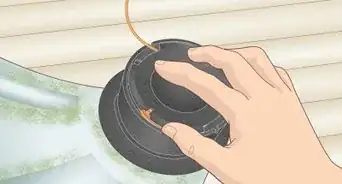

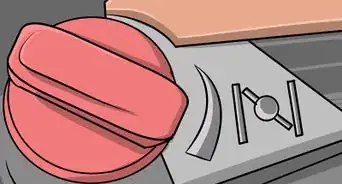

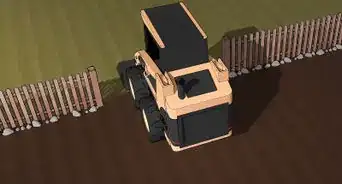
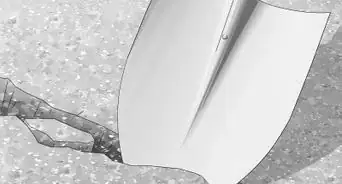
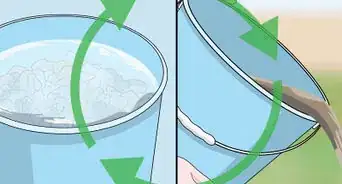

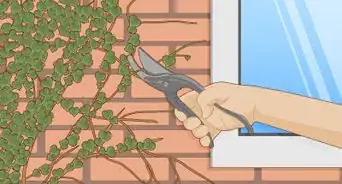
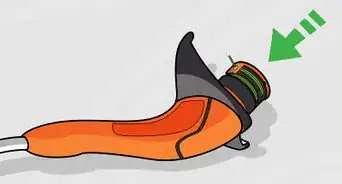
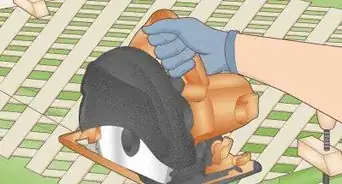
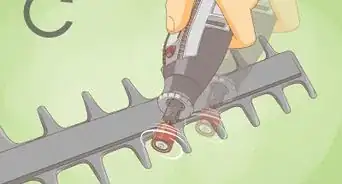
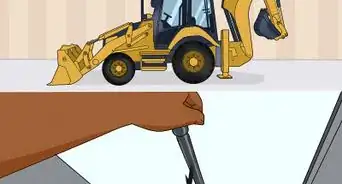
-Step-18.webp)









